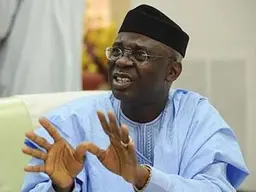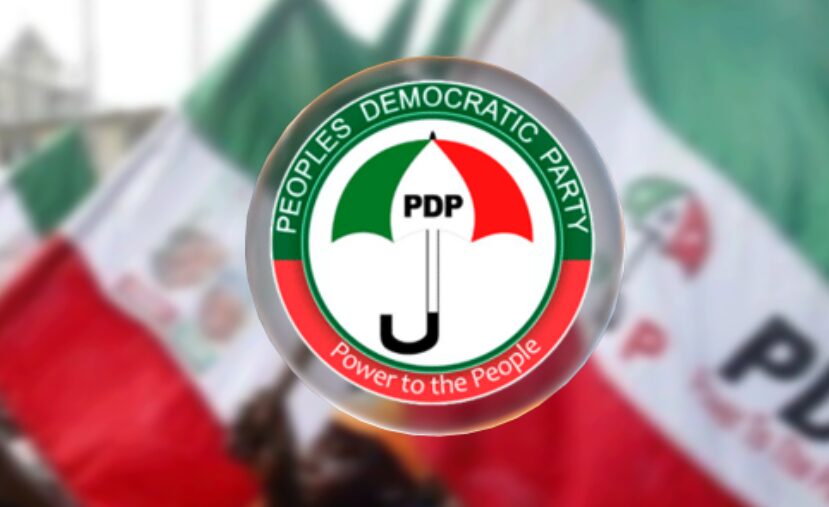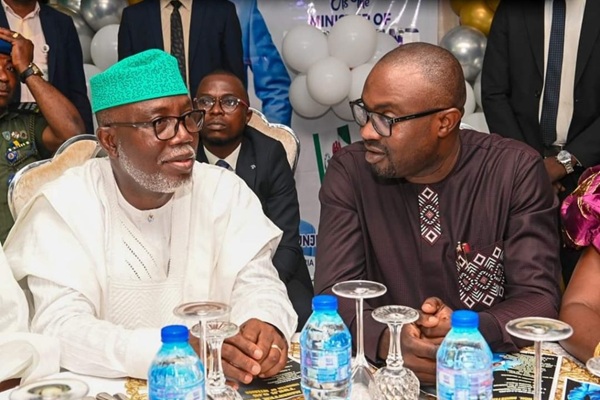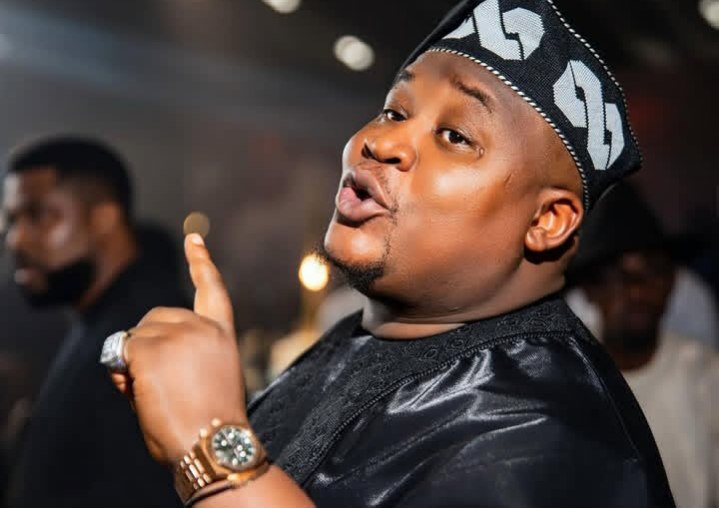In line with the directive of the National Secretariat of the All Progressives Congress, congresses to elect party officials at the ward, local government and state levels were scheduled for February and March this year.
However, concerns are mounting that the exercise in Ondo State could be marred by crisis amid a perceived supremacy battle between Governor Lucky Aiyedatiwa and the Minister of Interior, Olubunmi Tunji-Ojo, popularly known as BTO.
The alleged battle for control of Ondo APC took a deadly turn on Wednesday when two people were reportedly killed and five others injured during violent clashes at the ward congress in Odode-Idanre, the headquarters of Idanre Local Government Area. The incidents occurred as the ruling party conducted congresses across its 203 wards in the state.
The unrest is believed to be a spillover from Tuesday’s disruption at the party secretariat in Akure, where suspected hoodlums stormed a stakeholders’ meeting and assaulted party leaders.
Among the victims was Raphael Adetimehin, younger brother of the state APC caretaker chairman, Ade Adetimehin, who sustained machete wounds after attackers allegedly mistook him for his brother due to their resemblance. Eyewitnesses reported that his vehicle was set ablaze before he was rushed to the General Hospital in Idanre, where he remains in a coma.
By party tradition and structure, the governor is widely regarded as the leader of the party at the state level, just as the President occupies that position nationally. As a minister appointed by the President, Tunji-Ojo technically falls within that federal hierarchy.
However, recent developments suggest that the Ondo State chapter of the APC has quietly split into two blocs — one aligned with Governor Aiyedatiwa and the other with the Interior Minister.
Although neither Aiyedatiwa nor Tunji-Ojo has openly acknowledged any rift, subtle signs of tension have fuelled speculation. At the recently concluded 50th anniversary celebration of Ondo State, both men publicly displayed cordiality. A viral video showed them exchanging warm embraces at the Government House in Alagbaka. They also sat side-by-side at the grand finale held at the Akure Township Stadium, where Tunji-Ojo represented President Bola Tinubu. At least outwardly, there was no visible sign of animosity.
Behind the scenes, however, party sources claim the minister has been playing an increasingly influential role within the state chapter. Tunji-Ojo is said to have cultivated strong ties with party elders and stakeholders, providing financial support and attending to their needs — gestures that have reportedly earned him loyalty and reverence among some members. He is also believed to be coordinating various support groups working for President Tinubu’s re-election across the state.
Some beneficiaries of the minister’s outreach have allegedly accused Governor Aiyedatiwa of not doing enough to strengthen party structures, despite being the state’s chief executive.
The alleged rivalry came into sharper focus on Tuesday when political thugs invaded the APC state secretariat in Akure during a pre-ward congress stakeholders’ meeting. The attackers reportedly assaulted several party leaders, including the state chairman, Ade Adetimehin; the Ondo State representative on the board of the Niger Delta Development Commission, Otito Atikase; former Sports Commissioner Saka Yusuf-Ogunleye; and former Water Resources Commissioner Yetunde Adeyanju, among others.
In the aftermath, allegations emerged from some quarters that the governor’s camp orchestrated the disruption, claiming he had not approved the timing of the meeting. However, no official confirmation has substantiated those claims.
The former commissioner, Adeyanju, who was allegedly rough-handled by the thugs said, “The thugs came and were shouting, ‘we are from Aiyedatiwa.’ They specifically mentioned Aiyedatiwa, that ‘Aiyeatiwa sent us. We don’t want congress in Ondo State. The governor is in charge. The governor is the leader of the state and the governor is in charge. Nobody can query the authority of the governor and anybody that wants to talk about congress in Ondo State will be assassinated. If you talk about congress in Ondo State, you will be assassinated.’ They said that Aiyedatiwa owned the state, so, nobody should talk about congress.
Corroborating Adeyanju, the state party chairman, Adetimehin said, “The chairman of the committee (from Abuja) said we should hold a stakeholders meeting today (Tuesday). We both agreed to hold the meeting by 12pm. Then we sent this out for all of us to attend. Then I told the governor that I heard from the grapevine that some people were mobilising to the secretariat to destroy the meeting. He said no that such a thing cannot happen under his watch, that he would take charge. He (Aiyedatiwa) said he would caution anybody behind it, but 30 minutes later, the place was invaded with thugs, with cutlasses and other dangerous weapons. They beat hell out of all the leaders and members, except those who are for them. They beat me and dragged me on the floor; they took away my two phones and money from my pocket, with my wristwatch.”
However, Governor Aiyedatiwa denied any involvement in the disruption. The stakeholders’ meeting was eventually held later on Tuesday evening at the party secretariat — albeit in the absence of the state chairman.
The governor maintained that supporters of various aspirants were responsible for the violence, insisting he had no hand in the attack. He further clarified that the earlier gathering which was disrupted was not an officially recognised stakeholders’ meeting.
“But this one was an impromptu stakeholders’ meeting because of the congresses at the ward and local government levels. As he said, the meeting was shifted to 2pm because it was initially fixed for 10am and I said I would not be able to make it at that time. Later on, I got a call from one of them saying there were some problems around, or some miscreants around the party secretariat. I asked him to call the Commissioner of Police, and I also called the Commissioner of Police to ensure the place was protected because I was going to attend the meeting.
“I asked that security operatives be deployed to protect the place. Later, I got to know that some miscreants, who had sympathy for one aspirant or the other, those who are contesting for one position or the other, were moving around and trying to create some kind of fracas among them, which led to some disturbances.”
A chieftain of the party and Director-General of the pro-BTO group known as the Grassroots Movement for Tinubu, Saka Yusuf-Ogunleye, confirmed the internal crisis in the state APC relating to the governor and the minister, but blamed the governor for not managing the situation well as the leader of the party in the state.
Yusuf-Ogunleye, who was a former Commissioner for Sports in the state, alleged that Tunji-Ojo had been taking care of the party after it was abandoned by the governor. According to him, the gesture had earned the minister significant popularity, leaving the governor jittery.
He stated, “Let me tell you, there is what is called an inferiority complex. When the governor abandons the party — the people who brought him into power — it is BTO who steps in to take care of them. For instance, during the last Christmas period, when the governor was distributing rice to every local government, the rice was delivered to and received by political office holders and not party members.
“The party was abandoned, and it was BTO who brought rice and gave 20 bags to each ward, irrespective of affiliation. He is not shunning the party; he is taking care of it. But the governor is not happy about it because he (Tunji-Ojo) did not allow party members to suffer.
“If not for BTO today, there would be no APC in the state. That is the truth. That is why you see all the party leaders on his side. But the governor is not comfortable. They are saying BTO wants to become governor. You (Aiyedatiwa) have not even spent a year in office. You still have about three years in this tenure. Why not concentrate on governance and build the party? As a governor, why are you beating your party people? More than 17 party leaders are in different hospitals in the state now after the attack yesterday (Tuesday). Why resort to violence?”
On the contrary, the Chief Press Secretary to the governor declared that Aiyedatiwa remained the leader by virtue of his position as the state governor and that he had been carrying everyone along in the spirit of fairness while playing a strong leadership role in the party.
He denied any rift between his principal and the minister.
“The governor is the leader of the party and father to all party members. He has always provided leadership that embraces all groups and interests in the party since he became governor. He is the first governor in the history of the state to hold quarterly stakeholders’ engagements with party leaders, and this has fostered unity and a sense of belonging in the APC in the state.
“On the crisis in the ward congress in some parts of the state, the pockets of issues recorded have nothing to do with the governor, and that is why he called on security agencies to restore order at the party secretariat on Tuesday. The governor has also called on security agencies to investigate the crisis that took place in Idanre earlier today (Wednesday) and bring the perpetrators to justice.”
“He has also appealed to all aspirants contesting for party positions to call their followers and supporters to order as his administration will not tolerate any breakdown of law and order in any part of the state,” he stated.
In the same vein, the state Commissioner for Information, Idowu Ajanaku, said there was no rift between the governor and the minister, adding that as leader of the party in the state, Aiyedatiwa has provided effective leadership and fostered unity among members.
“I am not aware of any crisis anywhere, the governor is the party leader , no argument about that,” Ajanaku said.
In a situation like this, one would naturally ask about the role of the party elders, who had previously claimed to be unaware of the matter.
However, it now appears they acknowledge that there is crisis brewing within the party and have promised to intervene, particularly concerning the attack on the secretariat on Tuesday.
The chairman of the elders’ forum, Pa Erastus Akeju, said, “This dichotomy between BTO and the governor is new to us; we were not aware of it. It has not been brought before the elders. BTO has not reported to us that the governor is after him. The governor has not reached out to us to say that BTO is challenging him.
“We are just waiting for an opportunity to see what is really happening. You see, when there is no report of violence or disagreement — physical disagreement, I mean — we cannot simply go to the governor and ask, ‘Are you quarreling with BTO?’ or ask BTO, ‘What is between you and the governor?’ We would be told, ‘Nothing.’ So it is only now, as the issue has escalated publicly into a physical confrontation, that we can say, ‘All right, it’s time for the elders to intervene.’”
A political affairs analyst, Lanre Alewa, described the cold war between the governor and the minister as unhealthy for the ruling party, particularly with the general election fast approaching. He also stressed the need for the two APC chieftains to rein in their supporters, whom he described as the major cause of the crisis.
He said, “The minister and the governor were together at the recent 50th anniversary celebration of Ondo State. They were on the podium together, and the minister visited the governor at the Government House. They were visibly together. So, some people may claim they are fighting, but I have not seen anywhere that the minister directly accused the governor, or the governor directly accused the minister.
“At times, these political jobbers, who call themselves supporters, cause such issues. They must be called to order by their principals so they do not destroy the party.
“They just go out into the streets and act as they please. You cannot ascribe that to the governor or the minister — that would be wrong. I have not heard either of them say anything to that effect. However, if such a dispute exists, the national leadership should intervene and settle the matter amicably.”
punch.ng
FOLLOW US ON:
FACEBOOK
TWITTER
PINTEREST
TIKTOK
YOUTUBE
LINKEDIN
TUMBLR
INSTAGRAM






































